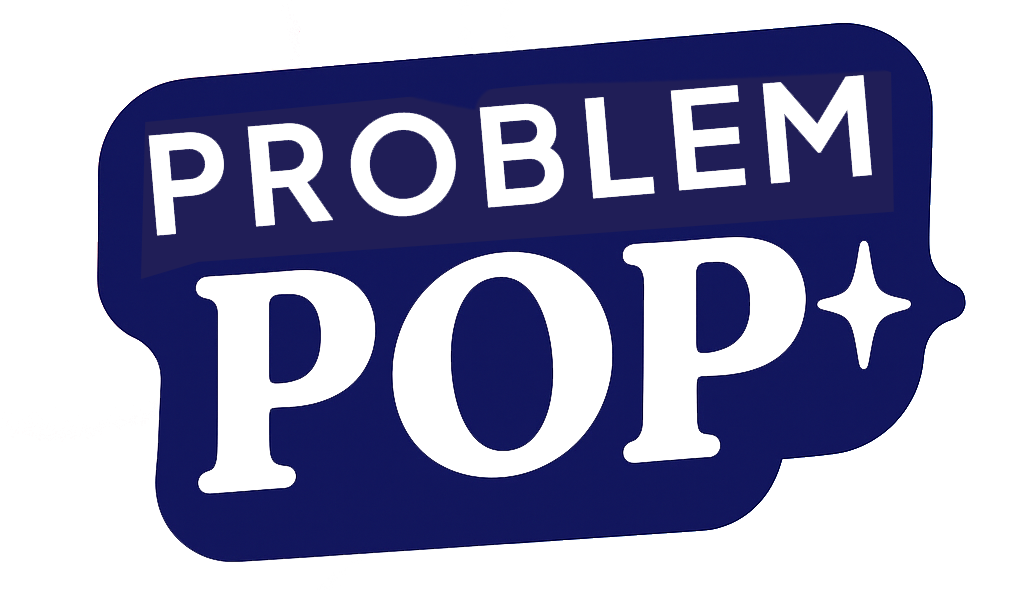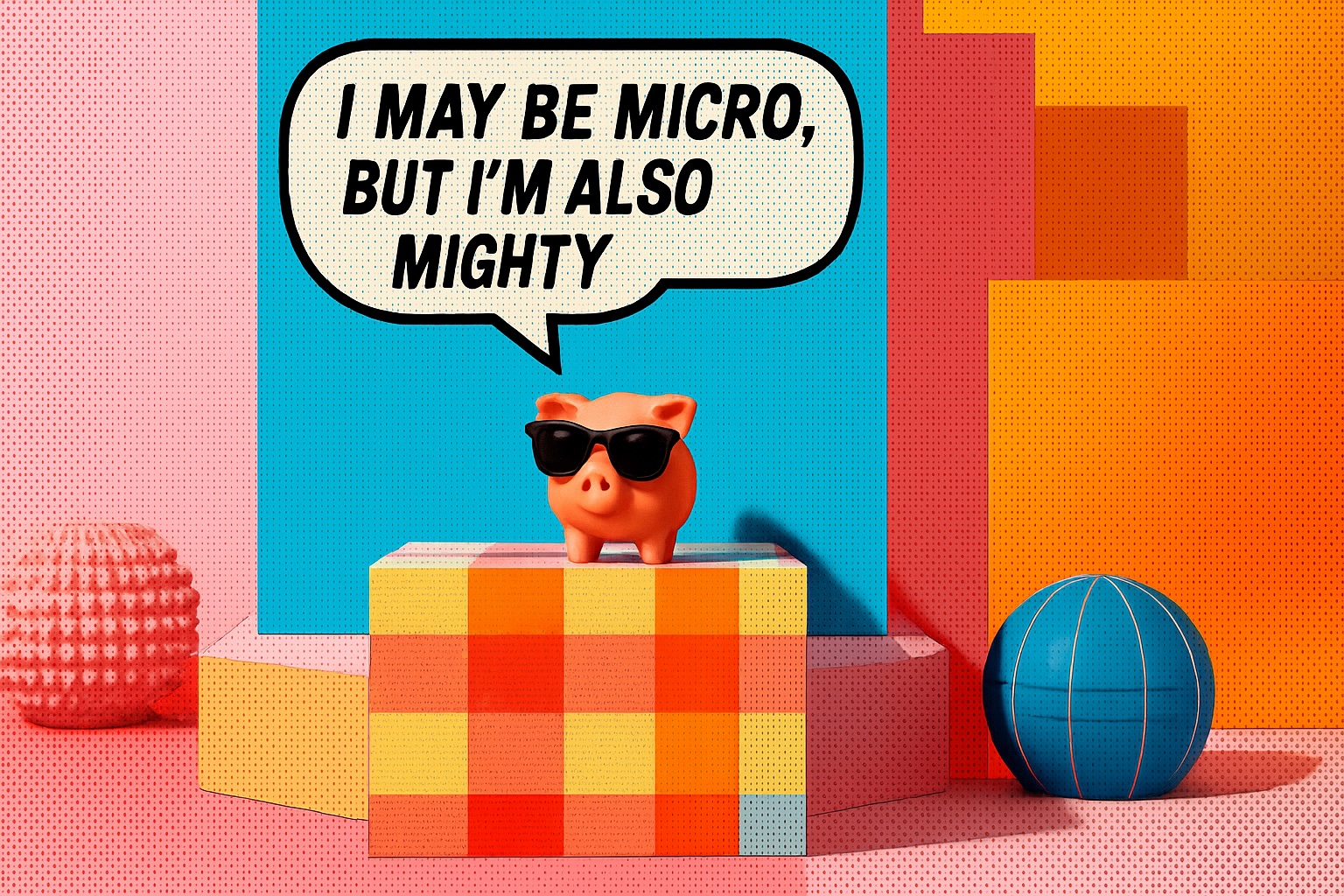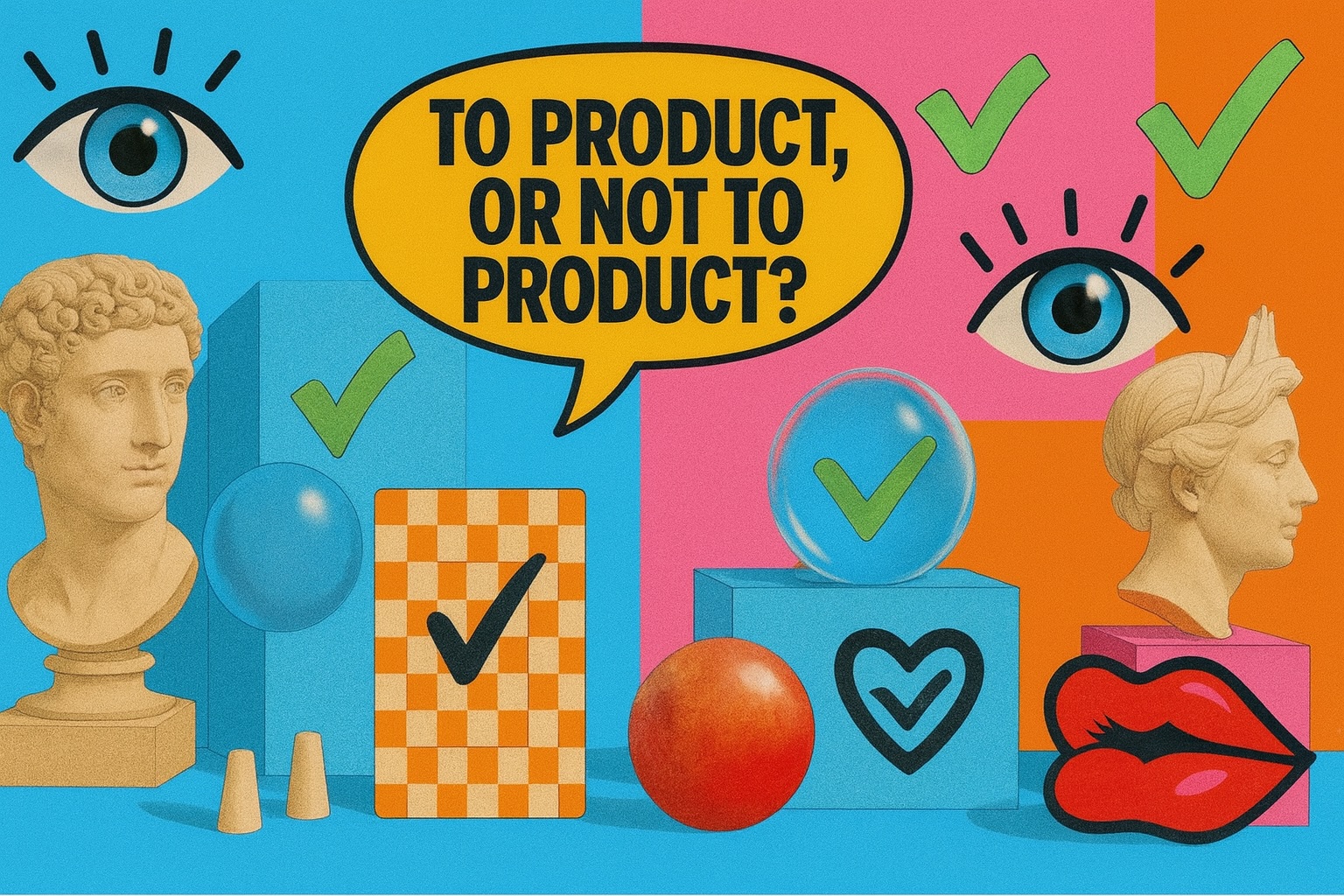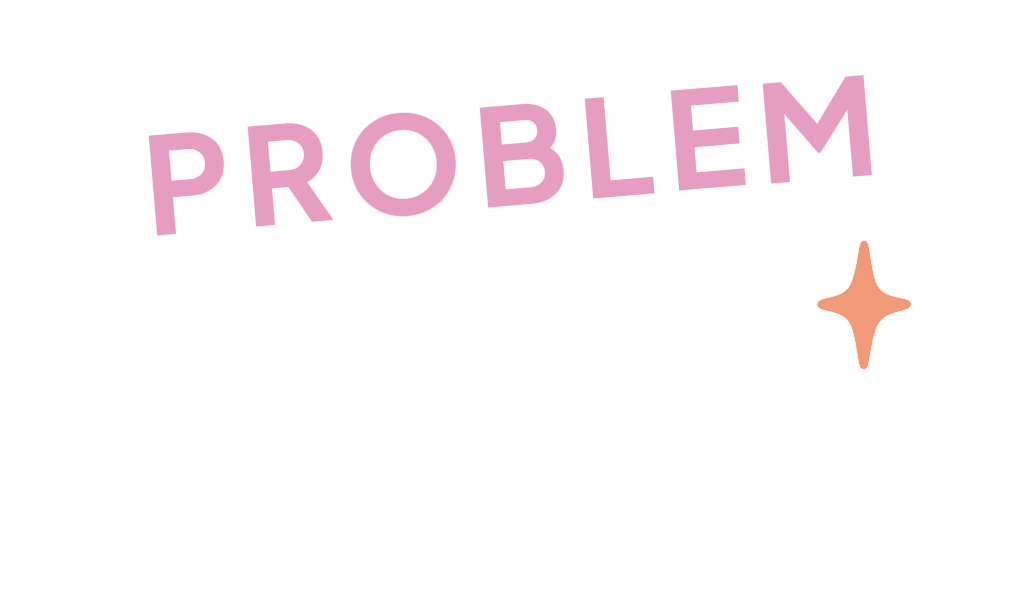The 'Micro-Celebrity' Strategy: How to Become the Go-To Expert in Your Tiny Niche
Forget chasing a million followers who couldn't care less about you. The real money's in becoming utterly obsessed with something incredibly specific that 500 people desperately need. Welcome to micro-celebrity, where being niche isn't nice – it's necessary.
From Nobody to Niche-body: The Art of Becoming Weirdly Famous in Your Little Corner of the Internet
Let's be honest. You're not going to be Beyoncé. You're not even going to be that person who once went viral for falling into a fountain whilst texting. But here's the liberating truth: you don't need universal fame to build a successful business. You just need 1,000 people who think you're brilliant at that peculiar thing you do. Welcome to the micro-celebrity strategy—where being a D-list celebrity in an A-list niche is your ticket to sustainable success. And yes, it's as delightfully strange as it sounds.
The Glorious Freedom of Narrow Fame
The micro-celebrity strategy isn't about becoming famous-famous. It's about becoming known-by-the-right-people famous. It's the difference between "Who's that?" and "Oh my god, it's THE person who knows everything about sustainable alpaca wool sourcing in the Andes!" (And we've all dreamt of being introduced that way, haven't we?)
This approach is particularly powerful because it's accessible to normal humans with finite time and energy. Having experienced the crushing weight of trying to be everything to everyone in my previous business ventures, I can tell you that narrowing your focus isn't just strategically sound—it's the only way to preserve your sanity.
The micro-celebrity path requires you to embrace two seemingly contradictory truths: you must simultaneously be unabashedly yourself (quirks and all) while also strategically positioning yourself in a specific ecosystem. It's like being both the eccentric lighthouse keeper and the maritime navigation expert. You're a character, but one with undeniable credibility.
Finding Your Micro-Niche: Where "Too Specific" Becomes "Just Right"
The first time someone suggested I narrow my focus, I laughed. "But I'll lose 90% of my potential market!" I protested. What I didn't understand then was that by trying to appeal to everyone, I was memorable to no one. The truth is, specificity is the antidote to anonymity.
Your ideal micro-niche exists at the intersection of three criteria: what you're genuinely interested in, what you're genuinely good at (or could become good at with focused effort), and what a specific group of people genuinely needs. Notice the repeated use of "genuinely"—that's because authenticity is the currency of micro-celebrity.
Finding your niche isn't about thinking smaller; it's about thinking deeper. It's about asking yourself: "What's the conversation where I consistently have something valuable to add?" Maybe it's helping mid-size manufacturing companies modernise their sustainability practices. Perhaps it's guiding first-generation entrepreneurs through fundraising. Or maybe it's teaching technical founders how to communicate with non-technical stakeholders.
The hallmark of a good micro-niche? When you describe it, most people should find it boring or irrelevant, but a select few should light up with recognition. "Finally! Someone who understands this specific problem!" If everyone thinks your niche sounds interesting, paradoxically, it's probably too broad.
Building Your Micro-Celebrity Status: The Unglamorous Reality
Here's the part most "personal branding gurus" won't tell you: becoming a micro-celebrity involves a lot of talking to yourself in the beginning. The first six months of building your niche authority will feel like shouting into a void, punctuated by occasional, polite nods from people who stumbled across your content by accident.
The key is consistency over intensity. I've seen countless entrepreneurs approach thought leadership with the same frantic energy they bring to everything else—going all-in for three weeks, burning out, then abandoning the effort entirely. That's the entrepreneurial equivalent of joining a gym in January and quitting by Valentine's Day.
Instead, focus on developing a sustainable content rhythm that you can maintain even during your busiest periods. This might mean one thoughtful LinkedIn post per week, a monthly newsletter, or a quarterly deep-dive article. Whatever cadence you choose, the goal is to become a reliable source of insight in your chosen domain. A comprehensive approach to building content funnels can help you maximise the impact of each piece of content across multiple touchpoints.
Here's what actually works when building your micro-celebrity status:
- Create a signature framework or methodology that addresses a common pain point in your niche—people love structured approaches to solving their problems.
- Document your own learning journey publicly—being one step ahead of your audience is often more relatable than being miles beyond them.
- Develop distinctive language for concepts in your field—terms that people begin to associate specifically with you.
- Consistently challenge a prevailing assumption in your industry—becoming known for a contrarian yet thoughtful stance.
- Connect disparate ideas from adjacent fields that illuminate your niche in a new way—intellectual cross-pollination is oddly compelling.
The goal isn't to be interesting to everyone. It's to be useful to someone. And then to be progressively more useful to more someones who share similar characteristics. You're not building a stadium; you're building a cosy pub where specific conversations thrive.
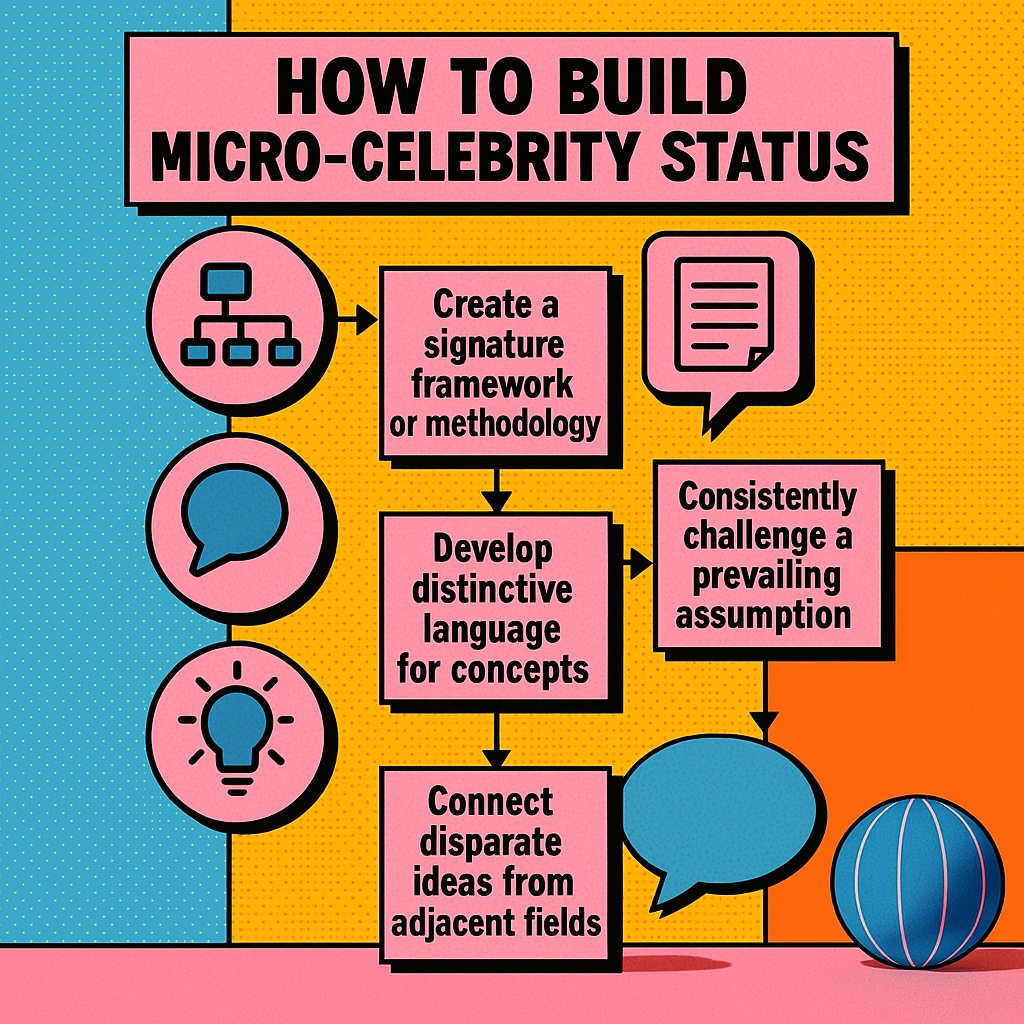
The Monetisation Question: Turning Niche Fame into Actual Money
Having learned the hard way that social media likes don't pay the mortgage, let's address the question you're actually here for: how does being known in a tiny corner of the internet translate to revenue?
First, understand that micro-celebrity status isn't the end goal—it's the vehicle. Once you've established yourself as a trusted voice in your niche, you've essentially created a platform of attention and credibility. The next step is to thoughtfully direct that attention toward your actual business offerings. This is where strategic social listening becomes invaluable—research shows that 71% of consumers who have a positive brand experience on social media are likely to recommend it to others, making it crucial to proactively monitor and engage with the conversations that matter most to your niche.
The beauty of the micro-celebrity approach is that it dramatically shortens your sales cycle. When people already know, like, and trust you through your content, they're predisposed to consider your paid offerings. You're no longer a stranger cold-calling; you're a familiar expert they've invited into their digital lives.
Monetisation strategies that work particularly well with micro-celebrity status:
- Advisory services where clients pay premium rates for direct access to your specialised expertise.
- Creating educational resources that systematise your knowledge for those who can't afford your direct time.
- Building a community where your audience pays for connection with each other, not just with you.
- Developing technology or tools that solve specific problems for your niche audience.
- Partnering with complementary service providers who need access to your specific audience.
The key is ensuring a natural progression from your free content to your paid offerings. If your content focuses on identifying problems, your paid services should deliver solutions. If your content provides theoretical frameworks, your paid offerings should offer practical implementation.
And here's the part that feels counterintuitive: as your micro-celebrity status grows, resist the urge to broaden your appeal. The temptation to reach a wider audience is natural, but diluting your specificity typically dilutes your value. You didn't become known as "the go-to expert on optimising supply chains for sustainable fashion brands" by suddenly pivoting to general business advice.
The Psychological Reality Check: It's Weirder Than You Think
Before we wrap up with tactical advice, let's acknowledge the strange psychological territory of micro-celebrity. When people you've never met begin treating you as if they know you—quoting your content back to you or referencing obscure points you made months ago—it's simultaneously flattering and disorienting.
The line between your public persona and private self will blur. You'll find yourself in conversations where strangers know intimate details about your professional opinions, while you know nothing about them. This asymmetric familiarity creates odd social dynamics that no one prepares you for.
Additionally, the responsibility of influence will occasionally weigh on you. People will make decisions based on your advice. Some will credit you with their successes (which feels wonderful), and others may blame you for their failures (which feels terrible, even when it's unjustified).
The healthiest approach is to develop a slight emotional detachment from your micro-celebrity status. Recognise it as a role you play in service of your business goals, not as a fundamental aspect of your identity. This detachment allows you to maintain perspective when feedback inevitably arrives—both the excessively positive and the unnecessarily harsh.
Your Micro-Celebrity Action Plan
If you're ready to embark on the strange journey of becoming weirdly famous to a small group of people, here's your practical roadmap:
- Define your micro-niche at the intersection of your expertise, passion, and market demand—then go one level more specific than feels comfortable.
- Audit where your ideal audience already gathers online and offline, then prioritise those platforms rather than trying to be everywhere.
- Create a content calendar that focuses on answering the most pressing questions in your niche—even (especially) the ones competitors avoid addressing.
- Develop a clear point of view that differentiates you from others in adjacent spaces—your stance on controversial industry topics.
- Build relationships with other micro-celebrities in complementary niches—cross-pollination amplifies visibility for all involved.
The most important advice I can offer is this: start before you feel ready. Your early content won't be your best content, but it's necessary to produce the volume from which quality eventually emerges. And remember, the goal isn't perfection; it's usefulness paired with distinctiveness.
After experiencing burnout from trying to do everything alone in previous ventures, I've learned that consistency trumps sporadic brilliance. A steady drumbeat of good content creates more lasting impact than occasional flashes of genius followed by silence.
In the vast digital landscape, being specifically helpful to a defined group isn't just good marketing—it's good humanity. It's about finding the people you're uniquely positioned to serve and showing up for them repeatedly, thoughtfully, and generously.
The Strange Freedom of Limited Recognition
Embracing micro-celebrity status offers an unexpected liberation. When you stop trying to appeal to everyone, you free yourself to be more authentic, more specific, and ultimately more valuable to those who matter most to your business.
In a world obsessed with scale, there's profound power in depth. Being known by 1,000 right people who genuinely value your expertise creates more opportunities than being vaguely recognised by 100,000 who aren't quite sure what you do.
So no, you won't be stopped for autographs at the supermarket. Your family members will still question whether you have a "real job." But in that peculiar corner of the internet where your expertise intersects with genuine need, you'll be received like the expert you've become. And in business terms, that's worth far more than fifteen minutes of mainstream fame.
